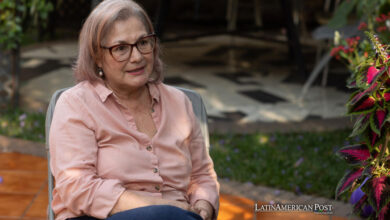The Challenges of the Next Government of Guatemala
On June 25, Guatemalans will elect their new president, who will replace Alejandro Giammattei.

Photos: TW-ZuryxGuate, TW-SandraTorresGUA, TW-Edmondmulet, TW-robertoarzugt
LatinAmerican Post | Santiago Gómez Hernández
Listen to this article
Leer en español: Los retos del próximo gobierno de Guatemala
One of the countries that will elect a new government is Guatemala. The small country, with a population of about 18 million, will have to choose who will replace Alejandro Giammattei. Among the candidates, the registration of 23 candidacies for president and vice president was approved.
Among the most popular candidates are: Zury Ríos, Sandra Torres, Edmond Mulet and Roberto Arzú. Ríos runs for the Valor y Unionista parties. She was a congressional deputy for 4 legislatures, pre-candidate for the FRG and presidential candidate for Visión con Valores in 2019, finishing fifth. However, her candidacy was revoked by the Constitutional Court. Ríos is the daughter of former President Efráin Ríos Montt and, therefore, generates great rejection within different Guatemalan sectors.
You can also read: Elections in Colombia 2023: the Disorder of Petrism vs the Inexperience of Duquism
For her part, Torres is the candidate of UNE, with a social democratic orientation, the main force in regional governments with 108 of 340 mayors in the country. This party has 40 of the 160 seats in Congress. The candidate is the wife of former President Álvaro Colom Ceballos, who presided over Guatemala from 2008 to 2012. She had already been a candidate in 2015 and 2019.
For his part, Edmond Mulet is a long-standing politician. He was Chief of Staff of the General Secretariat of the UN, Head of the UN Stabilization Mission in Haiti, deputy in Congress and president of the legislature.
Blocked Applications
One of the main controversies that has accompanied the electoral campaign is the blocking of some candidacies. The Supreme Electoral Tribunal rejected the registration of the Podemos formulas of Roberto Arzú García-Granados and David Pineda; and that of the Movimiento para la Liberación de los Pueblos of Thelma Cabrera and Jordán Rodas.
Precisely, Edmond Mulet, from the Cabal party, received a complaint from the Public Ministry for "supposedly" initiating an early campaign to speak out in favor of journalists. The controversy is that the Prosecutor's Office is headed by Rafael Curruchiche, who was sanctioned by the State Department as one of those responsible for acts of corruption.
Institutional Crisis
The main problem that the new government will have to face is the institutional and distrust crisis that exists in the country. In 2019, the Free Survey of ProDatos, PrensaLibre and Guatevisión indicated that only 29% of Guatemalans trust justice; 15% in the executive; and only 8% in the legislature.
This disappointment can be evidenced in electoral apathy. In the past elections of 2015 and 2019, Guatemalans went to the polls hoping for change. Today the panorama seems to be different and there is mistrust even in the electoral process. There are voices that denounce fraud plans.
The crisis reached its highest point in 2015 with citizen demonstrations against the government of Otto Pérez and Roxana Baldetti. The former president had serious allegations of corruption. Since then, citizens have expressed their rejection of a series of governments that are facing scandal after scandal.
Violence and Poverty
Another great challenge that the new executive will have to work on as soon as he becomes president is the violence and poverty suffered by citizens. In 2022, Guatemala registered 3,000 homicides, which gives a rate of 17 murders per 100,000 inhabitants. Although this is a much lower result than the 48.4 in 2009, it does represent a slight increase from the 15.2 in 2021.
Despite the fact that improvements have been made, violence and poverty continue to be the main causes of hundreds and thousands of Guatemalans migrating to other countries, especially the United States. According to WOLA, Guatemala is one of the main origins of migrants arriving at the southern border of the United States.



